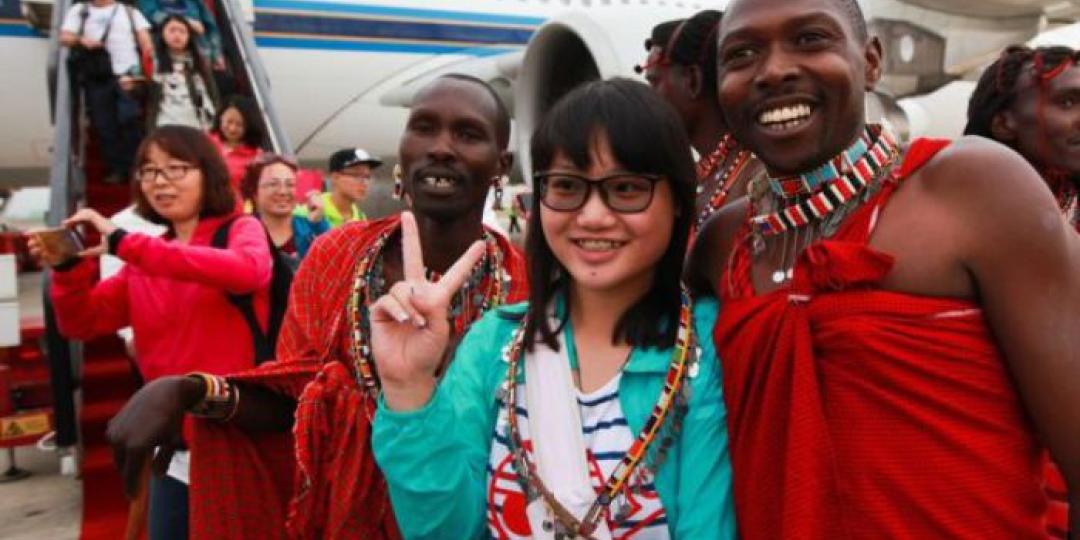Tourism statistics for March – the most recent to date to be released by Stats SA – reveal that tourist arrivals from Asian countries to South Africa are dipping.
For that month, Chinese, Indian, Pakistani, Singaporean and Thai tourist arrivals show decreases, but increases are seen by Japanese, Malaysian, Philippine, South Korean and Taiwanese tourists.
Reviewing the first three months of the year, Chinese visitors are down some 16%, Japanese by 8.6%, Malaysians by 7%, Pakistanis by 12%, Singaporeans by almost 7% and Taiwanese by 8%. India, however, shows a 9% improvement, the Philippines a 23% hike, South Koreans are up 3.5%, and the Thais in excess of 4%. Overall, inbound travel from all Asian countries recorded is down 4.4%, although China and India remain South Africa’s eighth and ninth top generating overseas countries.
In February, the Chinese market looked to be back on the rise with a 23% hike. Bradley Bouwer, President: Asia Pacific for South African Tourism’s Beijing Office, pointed out that this year Chinese New Year fell over that month and would have contributed to the increase. He did, however, express faith that new visa policies anticipated in the next three months should favourably effect growth going forward.
Currently a task team set up by the Ministries of Tourism and Home Affairs is looking into an easier visa regime for tourists to South Africa. Bouwer says relaxation will be welcomed by the Chinese trade.
Chinese, Japanese and South Korean trade and media delegations were recently hosted at Africa’s Travel Indaba. According to Bouwer, the Chinese group had a very fruitful Indaba, and the Japanese Association of Travel Agents (JATA), which formed part of the Japanese group, has since set a target to nearly double visitor arrivals to South Africa by 2020. The Korean delegates “were very positive not only about Indaba, but raved about the good quality meetings that they had, and all cited foreseeing growth to SA this year”.
Reliability and price
With all parties intent on increasing inbound traffic to southern Africa, what qualities/factors would guide an Asian tour company in its choice of a southern African destination marketing organisation (DMO)? TU put the question to those already active in the game.
James Hassan, Inbound Sales Manager for India, Far East and New Business Development at Thompsons Africa, said that credibility, reputation, and track record in Asian markets were significant factors.
Also important were quick response and turnaround times – a case of ‘snooze and you lose’, he stated.
Asian markets required good quality products at the best price, with the most favourable or lowest rates quoted from the outset.
“They want a company that is flexible, as their customers constantly make changes whilst on the ground. However, they don’t like DMCs making changes without approval. They want a company that can handle fully-packaged tours and products, as they don’t like any surprises,” Hassan expanded.
DMOs that can contract with specialist restaurants catering to specific market tastes would chalk up points. Understanding of cultural idiosyncrasies would also stand DMOs in good stead. Consistency in product offering and service delivery are also appreciated, as is adequate back-up and 24-hour support.
“While they don’t want to be offered products that don’t appeal to them, they do like to be kept informed of new products and services, so as to keep their own products fresh,” states Hassan.
Masa Yamawaki, Market Manager for Japan, South East Asia and Scandinavia at Tourvest DMC, says that security, foreign-language speaking guides and consultants, quick turn-around times, as well as competitive pricing, are among the most important factors considered by Asian companies looking for a local ground handler. Bouwer agrees that the ability to provide language proficiency is essential, as is knowledge of the area being visited.
SA Tourism offers some insight into the Vietnamese, Thai and Malaysian markets, gleaned from its operations in those countries.
South African companies who want to deal with the Vietnamese should have an understanding of the market, which is largely characterised by group and package tours. At present, most Vietnamese tourists spend five nights in South Africa, typically a night in Johannesburg, a night in Sun City and three nights in Cape Town; but there is, however, a requirement for more variation. Price is also a sensitive matter as the tourists will make comparisons with European, Australian or American products.
SA Tourism reports that Vietnamese tour operators are lacking in South African information and some even sell tours without having visited the country.
For their part, Thai tour operators seek highly credible, sincere and professional South African partners who can facilitate quick responses, constantly update product information and provide very competitive prices. South African DMCs are advised to research Thai culture, travel demands and preferences, and study the background and potential of the travel agent they are courting.
Malaysian tour operators set great store by reliability and fulfilment of agreed contracts. Competitive pricing in the three- to five-star range, and ability to provide halal or Muslim-friendly meals are important. So too is the availability of seat-in-coach tour programmes to accommodate FITs joining existing group tour packages.






















